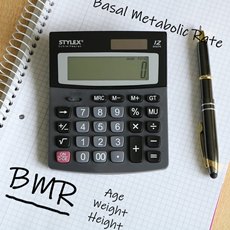Manage Stress with Relaxation & Meditation
Coping with stress naturally
First published: 24.Oct.2018
Daily life often put you under great pressure; work situations, family, money, and health can all trigger strong emotions and stress.
Your body reacts to stress by releasing a flood of natural chemicals that are the outcome of millions of years of evolution.
The purpose of this biochemical stress response is to help you survive the threats of a deadlier environment than the modern world.
Modern life elicits this stress response permanently, and the outcome of chronic stress is anxiety, depression, fatigue, unhappiness, and disease.
This article will look into the biochemical reasons for these physical and psychological changes, and what you can do to take control of your emotions and effectively manage stress.

Firesam!
What is Stress?
We can all recognize the onset of stress: the quickened pulse, a surge in blood pressure, or the shortness of breath are physical symptoms of stress.
A close brush with danger can trigger it, and so can a looming presentation at work, a job interview, or a money-related problem.
The word "stress" was first used by Selye in 1956 to express the consequences of an alteration of the inner balance of our bodies (this balance is known as homeostasis).
The factors that upset this balance are called "stressors" and can be anything from an external stimulus, a biological agent, to an environmental condition (heat, cold, noise, strong lights, overcrowding, aggression, etc.)
When we are subjected to stressors our bodies react with a "stress response" to regain our balance.
Selye also noticed that exposure to prolonged stress led to disease.
Schneiderman, Ironson, and Siegel (2008) (1) pointed out several stressors and stressful life events that can affect you severely and harm your health by causing anxiety and then depression, which in turn can provoke illness:
- People admitted for psychiatric treatment due to depression had a higher proportion of recent divorcees, unemployed, and suicide of relatives than in a control group.
- Being diagnosed with a major medical illness (strong stressor) was accompanied by high rates of depression
Trauma also leads to stress; roughly 40 to 70% of Americans have been exposed to traumatic events and around 13% of adult women in the US have been exposed to sexual assault (1).
One out of four people suffering from this type of trauma develops Post Traumatic Stress Disorder or PTSD. Although most people recover from traumatic events without developing PTSD.
Stress also leads to harmful behaviors such as heavy smoking, eating disorders, substance abuse, alcoholism, sleep problems, and higher rates of accidents. (1)
Communities with high divorce rates or that have experienced natural disasters, or job loss due to business closures have higher rates of smoking (and lung cancer).
The biochemistry of Stress
Human beings evolved in a world structured on predators and prey.
Long ago, in the distant dawn of mankind, the ancestors of modern human beings were defenseless four-foot-tall biped apes with a tiny brain, no tools, claws, or fangs. Survival depended on their ability to act quickly and physically: to flee or stay put and fight.
Evolution has fine-tuned the body to react promptly when it feels threatened. This reaction is called Stress.
A perceived threat causes stress, which in turn sets in motion a chain of physiological and psychological responses that prepare it to react to danger.
In the past, the presence of a lion or a hyena on the African savannah elicited the fight-or-flight response, so stress was a very useful survival tool.
But nowadays the threats or dangerous events are more mundane, but no less lethal: deadlines, pressure at work, a looming presentation, or a midterm exam.
These banal modern threats are lethal because the chronic stress that they provoke can cause serious health conditions in those that experience it.
The Stress Response
The stress response prepares the body to deal with a threat (in the past these were physical), so the nervous system which senses the threat sends signals along the nerves that cause the adrenal glands to release two hormones, adrenaline, and noradrenaline.
These hormones increase heart rate, blood pressure, glucose release, and breathing rate (which is quite logical, you need to move oxygen and nutrients very quickly within your body if you intend to outrun a predator or fight it).
Blood flow is shifted from the skin to the brain, legs, arms, and muscles. Causing you to turn pale (though your face may flush due to the blood surging towards your brain).
Blood clotting factors increase (in case you suffer injuries) to reduce blood loss.
Pupils dilate to improve the vision of your surroundings.
Muscles tense as they gear up for action, this may result in trembling.
Once the threat has passed, the body unwinds in a process that takes from 20 to 60 minutes.
The whole process is involuntary, you cannot control it. Even psychological fears (phobias) such as the fear of flying, or fear of heights can trigger a stress response.
Stress is not necessarily harmful. Some stimuli can provoke a strong stress response and not provoke side effects, other situations can exceed the individual's ability to adapt to them.
This may cause continued stress that can have serious consequences for your health.
Stress and health
Chronic Stress
If the brain continues sensing stress, a second mechanism kicks in inside the brain causing it to release hormones which in turn release glucocorticoids (GCs).
GCs interact with receptors located in the body's organs and tissues (such as nerves, immune cells, and the brain itself) and unleashes a series of continued stress response events.
During chronic stress, the GCs damping mechanism (which inhibits it, once the threat has been dealt with) does not work. The receptors of GCs become saturated and their response continues unabated.
The effects are devastating and cause long-term damage to organs, tissue, and the immune system.
Effects of chronic stress on brain structure
According to Mariotti (2015) (2) "chronic stress is linked to macroscopic changes in certain brain areas, consisting of volume variations and physical modifications of neuronal networks," this impairs our cognitive abilities.
Stress also stimulates the immune system to prepare itself to prevent damage, protect, and repair. This in turn releases cytokines (specialized immune proteins) which provoke inflammation. The white blood cell count also surges.
Chronic stress leads to chronic inflammation and the following diseases have been linked to both: "cardiovascular dysfunctions, diabetes, cancer, autoimmune syndromes and mental illnesses such as depression and anxiety disorders." (2)
Stress-related neurochemicals and high levels of cytokines in the brain cause damage to its structure and neuronal death (2).
The increased blood pressure triggered by stress becomes chronic and this forces the heart to pump harder causing an enlargement of its left ventricle, in the long run, this causes plaque formation and damages the arteries.
Depression and Fatigue
The excess of cytokines has been linked to a condition known as chronic stress-associated depression. Cytokines induce the body to save energy so that it can be used to react quickly during the threat and later hasten recovery from any wounds.
In the modern world, the cytokine-induced energy-saving mode causes the individual to feel tired, fatigued, and to suffer alterations in mood and mental abilities. Stressed out people become socially isolated.
Furthermore, stress causes "the oxidation of tryptophan (a precursor of serotonin) to Kynurenine (Kyn) ... [which] affects the brain levels of serotonin and thus serotonergic transmission and its mood and behavioral effects, but it is also responsible for the production of tryptophan metabolites that have neuroinflammatory properties...." (2)
Serotonin is a neurochemical that helps reduce anxiety, depression, and controls sleep, blood, and bone health as well as libido.
Stress reduces serotonin levels and increases anxiety and depression. To worsen matters, the tryptophan by-products inflame the neurons. A very unhealthy cocktail indeed!
Exercise against stress & Depression
But, there is hope. Exercising can be helpful according to Marioti: "physical exercise can sustain brain health by regulating the production of neurotrophic factors, neurotransmitters, as well as inflammatory molecules." This is because muscle contractions during exercise favor some biochemical reactions that reduce the amount of Kyn circulating in the body allowing for serotonin recovery.
Marioti concludes that: "programs of physical exercise should be formally proposed as a preventive measure to people known to be exposed to intense stress (eg., work-related stress), and could be prescribed as a form of therapy in combination with other treatments to ease mood and cognitive deficits caused by chronic stress." (2)
Take-home point
Stress can be managed with physical activity.
Stress in the elderly group
Vulnerable groups such as the elderly population suffer severe health consequences due to stress.
Chételat et al. (2018) (3) pointed out that stress, depression, and anxiety can "affect sleep, cognition and mental health and well-being in aging populations and [are] associated with increased risk for Alzheimer's disease."
Half of the older adults have sleep disturbances, and 10 to 15% of them suffer from depression. Furthermore, according to Chételat, "each depressive symptom increases dementia risk by approximately 20%."
Stress, worry, and anxiety all contribute to sleep disturbances, affect mental wellbeing, promote cognitive decline, and alter the brain structure and function.
Aging leads to a gradual loss of immune function and stress makes this effect even worse because it reduces the ability of older adults to produce antibodies after being vaccinated, or while fighting off a viral infection. They fall prey to the flu (even after getting their influenza shots) or infection at higher rates, and these are a major cause of mortality of the elder population (1).
It is crucial to target these psycho-affective traits by non-pharmacological means to improve the overall wellbeing of elderly adults.
Managing Stress with Meditation and Relaxation
Many people use meditation to counteract stress and its nasty side effects, others use it to promote overall health and wellbeing.
Some people use the terms relaxation and meditation as synonyms, but they are not the same. They are different:
Although Meditation is a form of relaxation, the opposite isn't true: relaxation is not mediation. Let's see the differences between both terms.
Relaxation
Relaxation is handling stress, letting it go, unwinding, uncoiling the springs that stress builds up inside of you. It is about reducing anxieties and releasing tension.
Relaxation is the absence of arousal provoked by anger, anxiety, or fear, it is a state of low tension.
Relaxation is the opposite mechanism to the stress-response; it is the quieting of the body, it is the relaxation-response.
Under normal conditions, the stress-response mechanism halts after some 20 to 60 minutes, and the body gradually returns to its normal state, and this is because the parasympathetic autonomous nervous system unwinds the body's fight-flight response (slowing heartbeat, reducing blood pressure, and breathing rate).
However, under chronic stress situations relaxation can be quite difficult to achieve.
Meditation
Meditation, on the other hand, focuses the individual's attention and awareness to achieve mental clarity and place mental processes under control. This in turn results in a state of peace and calm. Clarity and concentration.
Although meditation is often considered to be a form of relaxation, it not only provokes a relaxation response; it also produces an altered state of consciousness. And it is this enhanced awareness that distinguishes meditation from relaxation.
The English word comes from the Latin "meditatio" the act of contemplation, pondering, or thinking.
It has been practiced for thousands of years and has formed part of religious beliefs and cultural traditions (such as dhyana among Yogis).
Relaxation Techniques
The relaxation response to combat the stress response can be evoked using the following relaxation techniques.
Autogenic training
Autogenic (or "self-generated" technique is a kind of "autohypnosis" and involves concentrating passively on the physical sensations (warmth, relaxation, heaviness) of different parts of the body while the subject repeats certain phrases such as "My legs are warm. My right leg is warm. My left leg is warm. Both of my legs are warm", and "My heartbeat is calm and regular", "My breathing is calm and regular".
The setting should be a calm one, and the subject can either sit or lie down and breathe deeply and slowly.
Progressive muscle relaxation (PMR)
Devised by Jacobson in 1938 and expanded by Wolpe & Lazarus (1966), it is based on the theory that two opposing nervous system circuits (the sympathetic and the parasympathetic autonomous systems) are associated with anxiety and relaxation.
While the sympathetic system kicks in during stress (anxiety), the other one is responsible for relaxation.
So by deliberately applying relaxation to the body, one could overcome the tension caused by stress and be able to relax.
The technique involves tensing and releasing different muscle groups in sequence, and this relaxes the body.
The subjects note the sensations of the tension felt in each muscle, and also the effect caused by releasing this tension, and this monitoring of tension-relaxation cycles provokes a quick drop of muscular tension promoting the parasympathetic system to kick in and reduce stress.
Applied Relaxation
As described by Hayes-Skelton and Roemer (2013) (4) this is a self-monitoring technique.
The subjects must pay attention to situations that provoke anxiety, record them, and their reaction to these stressors. The outcome is that they learn how to distinguish the different components (emotional, intellectual, physiological) and their behavior when faced with them.
PMR is added to this monitoring to achieve a state of relaxation.
So it involves an active interaction to learn how to cope with the stressors and identify them as well as releasing stress via PMR.
Relaxation is effective for treating anxiety
Manzoni et al. (2008) (5) analyzed a series of studies that spanned ten-years to find out if relaxation was an effective treatment for anxiety problems.
They found that it was: "relaxation training showed a medium-large effect size in the treatment of anxiety."

Meditation Techniques
There are different meditation techniques, and some are also coupled with dietary or physical exercise therapies such as Ayurveda or yoga schools in India
Meditation focuses on "mindfulness", "concentration", and "automatic self-transcendence". It achieves this through different techniques such as the use of a mantra in transcendental meditation or the present-focused awareness of "mindfulness."
The goal of meditation, according to Hari Sharma (2015) (6), is to "connect oneself to one's deep inner Self," and there are a variety of techniques to do so which work at different levels: mind, emotions, senses, and the intellect.
Some techniques involve nature sounds (ocean, wave, or birds) others involve exercise, as is the case with Tai Chi, Yoga, and Mantra. They also include contemplation, concentration, and guided meditation.
Is Meditation effective in managing stress?
Yes, and No, and Maybe. Read why below:
Madhav Goyal et al. (2014) (7) performed a meta-analysis (a statistical study that combines information from different studies and tests) of 47 trials with 3,320 participants seeking evidence of the health benefits of mediation. They reached the following conclusions:
- There was moderate evidence that mindfulness meditation programs improved anxiety, pain, and depression.
- The effects although small were "comparable with what would be expected from the use of an antidepressant... without the associated toxicities."
- There was little evidence that it "improve[s] stress⁄distress and mental health-related quality of life."
- There was little or insufficient evidence, or no effect of any effect of "meditation programs on positive mood, attention, substance use, eating, sleep, and weight."
- There was no evidence that "meditation programs were better than any active treatment (drugs, exercise, other behavioral therapies)."
Manzoni et al. (2008) (5) reported that meditation had a higher "efficacy" in treating anxiety when compared to mere relaxation techniques. Meditation by itself or combined with cognitive therapy as is the case of Mindfulness-Based Cognitive Therapy (MBCT) during an "8-week course for patients with recurrent depression or recurrent depression and anxiety, [resulted in] a great average reduction of anxiety, as well as depression."
Take-home point
Meditation can handle pain, anxiety, and depression as well as medication without the toxic side-effects.
Meditation programs are not more effective than exercise, cognitive-behavioral group therapy, progressive muscle relaxation in changing mood, substance abuse, weight, insomnia, etc.
Meditation could prevent brain function decline with age
Chételat et al (2018) (3) studied older subjects and compared the brain structure and blood sugar levels in six senior expert meditators and 67 normal persons taken as control subjects. They found that:
- "gray matter volume and⁄or glucose metabolism was higher" in the meditator group.
- "suggest[ing] that long-term meditation practice might help preserve brain structure and function from progressive age-related decline."
Transcendental Meditation and Mindfulness
Transcendental Meditation benefits
Walton, Schneider, and Nidich (2004) (8) described the benefits of Transcendental Meditation or TM, a technique based on the ancient Vedic traditions of India.
They found that it had a significantly greater impact on stress reduction and anxiety than the other types of meditation, PMR, or other relaxation techniques.
TM also has positive effects on psychologic health indicators which are also greater than that of other forms of meditation and relaxation techniques.
Mindfulness
Mindfulness is a technique currently in vogue, though it has ancient roots in Buddhism and has been applied in psychological therapy since the 1970s.
A good definition is the one given by Zabbat-Zinn: mindfulness is the awareness that arises through "paying attention in a particular way: on purpose, in the present moment, and nonjudgmentally."
This requires an attitude of curiosity and acceptance, but not passive acceptance or resignation; in mindfulness, acceptance means the ability to experience things fully.
Keng, Smoski, and Robinsa (2011) (9) looked into mindfulness and its effects, and concluded that "mindfulness brings about various positive psychological effects, including increased subjective well-being, reduced psychological symptoms and emotional reactivity, and improved behavioral regulation."
Conclusions
When stress becomes a daily issue and you can't adapt to the threats that you sense in your surroundings, it can cause serious health issues, from impairing your brain functions to reducing your immune system's abilities to fight off infections. Chronic inflammation unleashed by chronic stress can provoke heart disease, diabetes, and even cancer.
Quality of life decreases with the fatigue, lack of sleep, depression, and anxiety caused by the biochemical sequels of chronic stress.
In older persons continual stress response can lead to mental decline and dementia.
Meditation techniques and relaxing, plus the help of physical exercise can be combined with other therapies to help control stress, anxiety, and even depression without the need for medication.
References and Further Reading
(1) N. Schneiderman, G. Ironson, and S. Siegel, (2005). Stress and Health: Psychological, Behavioral, and Biological Determinants. Annu Rev Clin Psychol. 2005; 1: 607-628. doi: [10.1146/annurev.clinpsy.1.102803.144141]
(2) Mariotti (2015). The effects of chronic stress on health: new insights into the molecular mechanisms of brain-body communication. Future Sci OA. 2015 Nov; 1(3): FSO23. 2015 Nov 1. doi: 10.4155/fso.15.21
(3) Gaël Chételat et al. (2018). Why could meditation practice help promote mental health and well-being in aging?. Alzheimers Res Ther. 2018; 10: 57. 2018 Jun 22. doi: 10.1186/s13195-018-0388-5
(4) S. Hayes-Skelton and L. Roemer, (2013). A Contemporary View of Applied Relaxation for Generalized Anxiety Disorder. Cogn Behav Ther. 2013 Dec; 42(4): 10.1080/16506073.2013.777106
(5) G. Manzoni, F. Pagnini, G. Castelnuovo, and E. Molinari, (2008). Relaxation training for anxiety: a ten-years systematic review with meta-analysis. BMC Psychiatry. 2008; 8: 41. 2008 Jun 2. doi: [10.1186/1471-244X-8-41]
(6) Hari Sharma (2015). Meditation: Process and effects. Ayu. 2015 Jul-Sep; 36(3): 233-237. doi: [10.4103/0974-8520.182756]
(7) Goyal M., et al., (2014). Meditation Programs for Psychological Stress and Well-being: A Systematic Review and Meta-analysis. JAMA Intern Med. 2014 Mar; 174(3): 357-368. doi: 10.1001/jamainternmed.2013.13018
(8) K. Walton, R. Schneider, and S. Nidich, (2004). Review of Controlled Research on the Transcendental Meditation Program and Cardiovascular Disease Risk Factors, Morbidity, and Mortality. Cardiol Rev. 2004; 12(5): 262-266. doi: [10.1097/01.crd.0000113021.96119.78]
(9) S. Keng, M. Smoski, and C. Robinsa, (2011) . Effects of Mindfulness on Psychological Health: A Review of Empirical Studies. Clin Psychol Rev. 2011 Aug; 31(6): 1041-1056. 2011 May 13. doi: [10.1016/j.cpr.2011.04.006]
About this Article
Cope with stress using Meditation and Relaxation, A. Whittall
©2018 Fit-and-Well.com, 24.Oct.2018. Updated. 07.Dec.2020. https://www.fit-and-well.com/wellness/relaxation.html
Tags: stress, chronic stress, stress response, Mindfulness, meditation, depression, anxiety, fatigue, relaxation.
This Webpage
Subject: Fit-and-Well.com. Manage Stress with Meditation and Relaxation. This article reviews some tools to help you manage stress, keep it from becoming chronic, and preventing its negative health effects. Exercise, relaxation, and meditation can help control stress response naturally.






